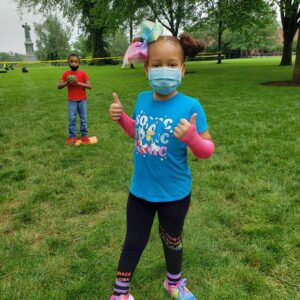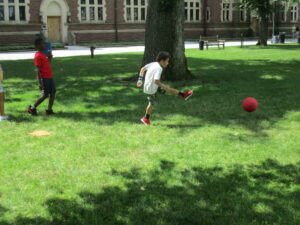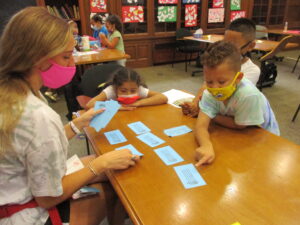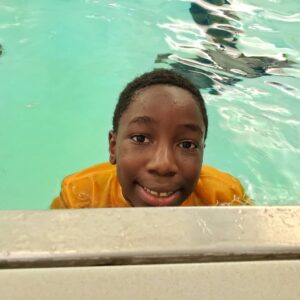For more than 160 school-aged students, life has returned to some sense of normalcy. Hartford-area students recently began summer at Dream Camp, located on the campus of Trinity College. The camp, in its 24th year, is an academic mentoring program that provides a fun, educational, and safe environment for participating elementary through high school students.

Due to the COVID-19 pandemic, the program in the summer of 2020 was conducted virtually. Students learned remotely, with educational kits delivered to their homes and online instruction provided by the camp’s counselors.
“In-person was needed,” said Dan Swartz, camp site director. “We were hoping we could do Dream Camp in-person this year, and with vaccinations increasing, we were able to make it happen safely. We wanted to help students who experienced an educational loss while virtually learning to move forward academically.”

According to a recent article from The CT Mirror, a report from the Connecticut RISE Network shared that, “Among the students attending school entirely online, 46 percent failed at least two courses, compared to 26 percent of those attending class partially in-person and from home.” However, it may still be too soon to assess how much education was lost during the pandemic.
This year, Dream Camp was only able to accept 160 students, as opposed to its typical headcount of 260. To follow state guidelines and protect students and its staff, the program opted to decrease the number of students by 100 and reduced its classroom capacity to 15 or fewer people, including counselors. Students and staff are also required to wear masks indoors.
“Students have been learning virtually for about a year and a half,” said Swartz. “We want to help combat any academic loss students experienced. We have STEM [science, technology, engineering, and mathematics] lessons for students in grades 1-4 and grades 5 and up. We also teach music and offer sports such as basketball, soccer, handball, and football. Students learn about healthy living and nutrition, too.”

Paul Raether, ’68, H’14, P’93, ’96, ’01, the Dream Camp founder and long-time supporter, said he was “very glad” to see Dream Camp operate in person again this year. “The resources the camp provides help educate and engage students in new experiences during the summer when learning can often decline,” he said. “We are extremely grateful to Trinity for again providing its facilities this summer and for helping us make Dream Camp an in-person experience. Our campers are very excited to be back on campus.”

Dream Camp kept one of its learning tools from its virtual lessons: the KiwiCo. crates, a subscription-based kit that offers creative science, technology, engineering, arts, and mathematics (STEAM) activities for children. The kits help engage students in arts and design, imaginative play, and work to develop fine and gross motor skills. KiwiCo. crates are sent to students’ homes, so learning and innovation can continue beyond camp hours. The students build different models—including robots and flashlights—with the customized kits.
“Dream Camp offers a consistent, safe, and comfortable place for students. Many of the counselors here have been here for more than 10 years,” said Swartz. “We don’t babysit; kids are learning here, they get character lessons and learn about respect and community.”
Dream Camp is a year-round program. Its afterschool program will begin in October. Families can begin registering for the program in August by contacting Dream Camp.
